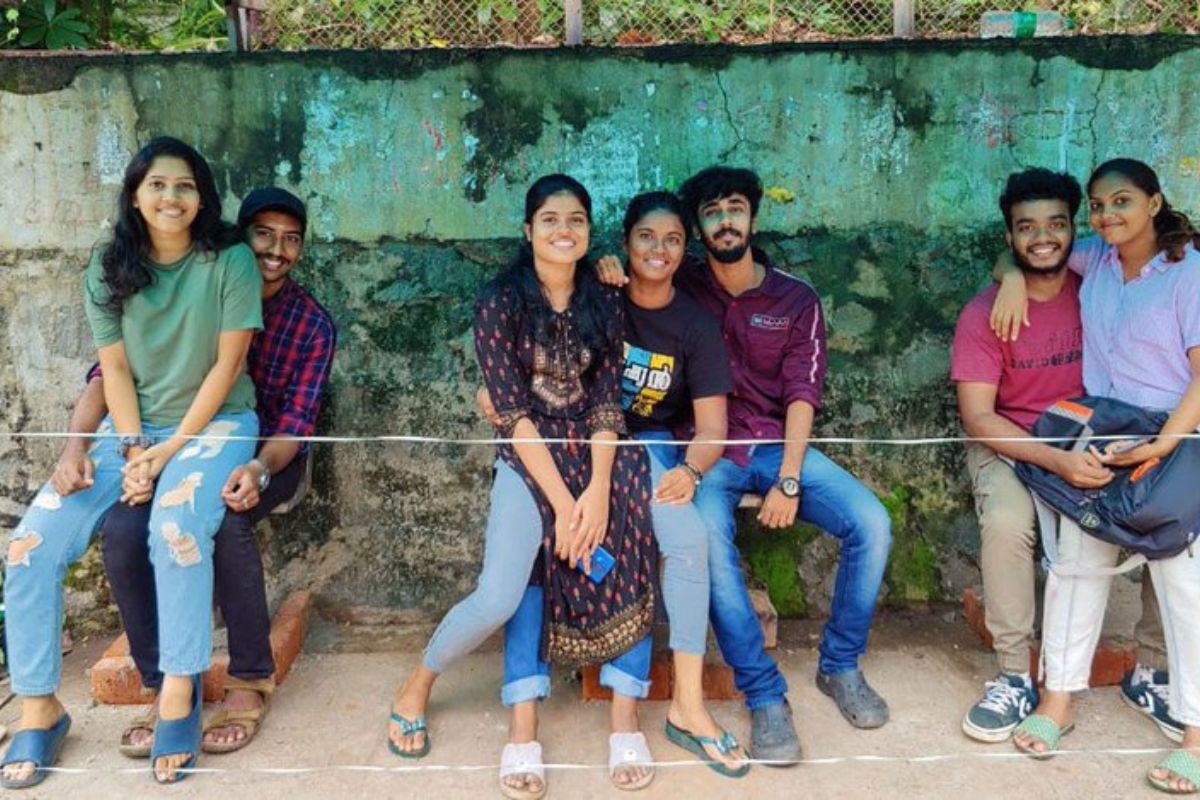Not just distress
The Mahatma Gandhi National Rural Employment Guarantee Scheme (MGNREGS) has long been viewed as a barometer of rural distress in India. However, the recent Economic Survey challenges this perception
It is a particular shame that such an event has gone down in Kerala which, on most other social indicators, leads the country.

image source Twitter
The sit-in, close cousin of India’s infamous contribution of the word “gherao” to the Oxford Dictionary, has long been part of the vocabulary of protest in these parts. Now, young India is busy expanding that lexicon with the introduction of a new phrase – sit-on. College students of both sexes literally sat on each other’s laps in a waiting shed (rain-shelter) in Thiruvananthapuram, Kerala, on Wednesday, to register their protest at the moral policing being attempted by locals. These self appointed custodians of regressive “cultural values”, which are nothing but a reflection of the deep-seated sexism prevalent across South Asia, had broken the single bench in the shed into three parts to ensure girls could not sit with boys. But they had obviously not reckoned with the students ~ both female and male ~ of the nearby College of Engineering who decided that each of the now single-seater benches would be occupied by two or even three of them thus staging a laptop protest, as it were.
This novel mode of asserting their rights has since gone viral on social media as the college kids posted photographs of themselves sitting on each other’s laps, fingers intertwined, and arms draped over each other’s shoulders. None of them tried to hide their faces; in fact, all of them can be seen smiling and laughing into the camera in the photographs. In politically progressive but socially conservative Kerala, this is akin to metaphorically showing those who would deny young people agency the middle finger. This incident, however, is just the latest manifestation of the long-standing attempt to enforce gender-segregation in classroom seating across schools and colleges in Kerala by a section of society. The pushback from students of the College of Engineering, while it ought to warm the cockles of our hearts and even elicit a chuckle or two, needs to be supported by civil society.
Depending on traditional political parties and/or socio-cultural organisations to support the right of young adults to socialise on their own terms is an exercise in futility. These outfits reflect an ultraconservative mindset which, while couched in the language of safety of women or protecting traditional values, emanates from rank misogyny. The problem the local vigilantes had was not so much that girls and boys were sitting together on a single bench in the Thiruvananthapuram waiting shed, but that girls were sitting with boys. The distinction is subtle but vital. It is a particular shame that such an event has gone down in Kerala which, on most other social indicators, leads the country. Empowering women does not stop at providing them access to healthcare, education, and ensuring their safety. These mean very little unless female agency is recognised and respected. Anything less would be infantilising women and, as the student protestors of Thiruvananthapuram have shown, that is unacceptable to the new generation.
Advertisement
Advertisement